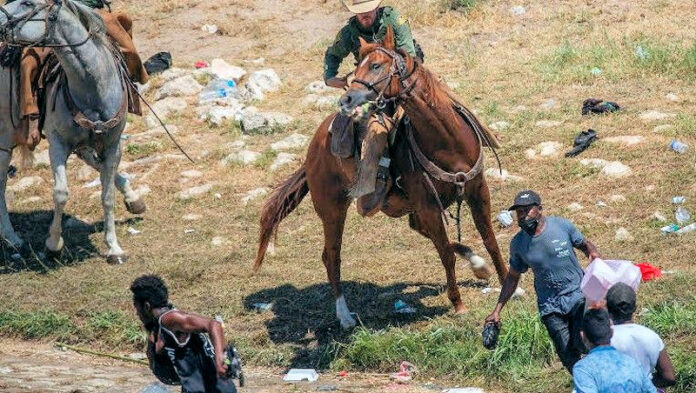
Why is the U.S. capturing, incarcerating, and expelling people from Haiti who are seeking to enter the U.S.? Why are thousands of people from Haiti gathering in Texas seeking to enter despite the U.S.’s conduct? Media discussion of this crisis too often avoids the real issues and frames the U.S. as the upholder of the rule of law while portraying the people migrating as attempting to violate the law.
The opposite is true, and in my last month of the Bertha Justice Fellowship with the Institute for Justice & Democracy in Haiti (IJDH), I partnered with the Haitian Bridge Alliance (HBA) to research and write about the “the series of human rights abuses experienced by Haitian migrants and other Black migrants in the Americas.”
My family’s attempt to move North was met with xenophobia, legal challenges to their status, efforts to undermine their ability to secure basic needs, and violence.
In the United States, “Haitian migrants have experienced decades of racist and xenophobic migration policies based on the right to exclude that includes a series of illegal and discriminatory policies designed to keep Haitian and other Black migrants out of the United States,” we wrote in a 15-page report. “More recently, a series of draconian policies (Metering, Migrant Protection Protocol, and Title 42) have resulted in a failure of protection, prolonged family separation, and myriad human rights violations of migrants. Together, these policies, as intended, have prevented most migrants from seeking asylum and resulted in their immediate deportation, in direct violation of non-refoulement principles.”
Therefore, the arrival of some 15,000 Haitians in Del Rio, Texas and the subsequent, summary deportation of many of them by U.S. immigration agents should not come as a surprise. “After their long and traumatic journeys of several months or even years through South and Central America, they arrive at the U.S.-Mexico border to find it closed,” we wrote in August. “Unable to return to their home countries and unable to firmly settle elsewhere in the Americas, Black migrants are often stuck for years in Mexico in dangerous and hostile environments in cartel-controlled territories.”
The document was submitted to E. Tendayi Achiume, the UN Special Rapporteur on contemporary forms of racism, racial discrimination, xenophobia and related intolerance.
The submission shows how the U.S. actually drives non-compliance with international law in the Americas and how its preservation of its economic and geopolitical status continues to drive the root causes of displacement. I hope this report can be helpful to those who may want to explore an anti-racist, rights-based perspective.
While researching and writing with HBA, I couldn’t help but think about the fact that a century ago, my family fled racist violence in the South after my great-great grandfather was killed in front of his own son. My family’s attempt to move North was met with xenophobia, legal challenges to their status, efforts to undermine their ability to secure basic needs, and violence. I know there are differences between what my family faced and what the people attempting to migrate northward through the Americas are facing now, but fundamentally, on a human level, I cannot see how they are different. I know my ancestors would not want me to explain away and/or justify why Haitian migrants are being treated as if they have no rights.









